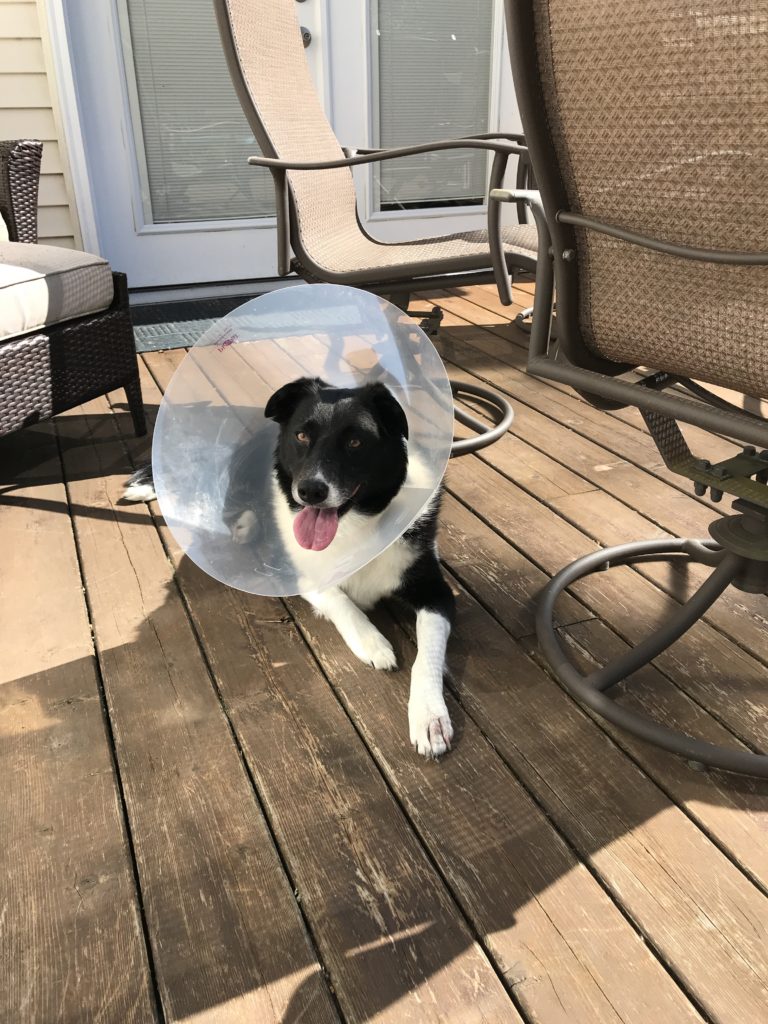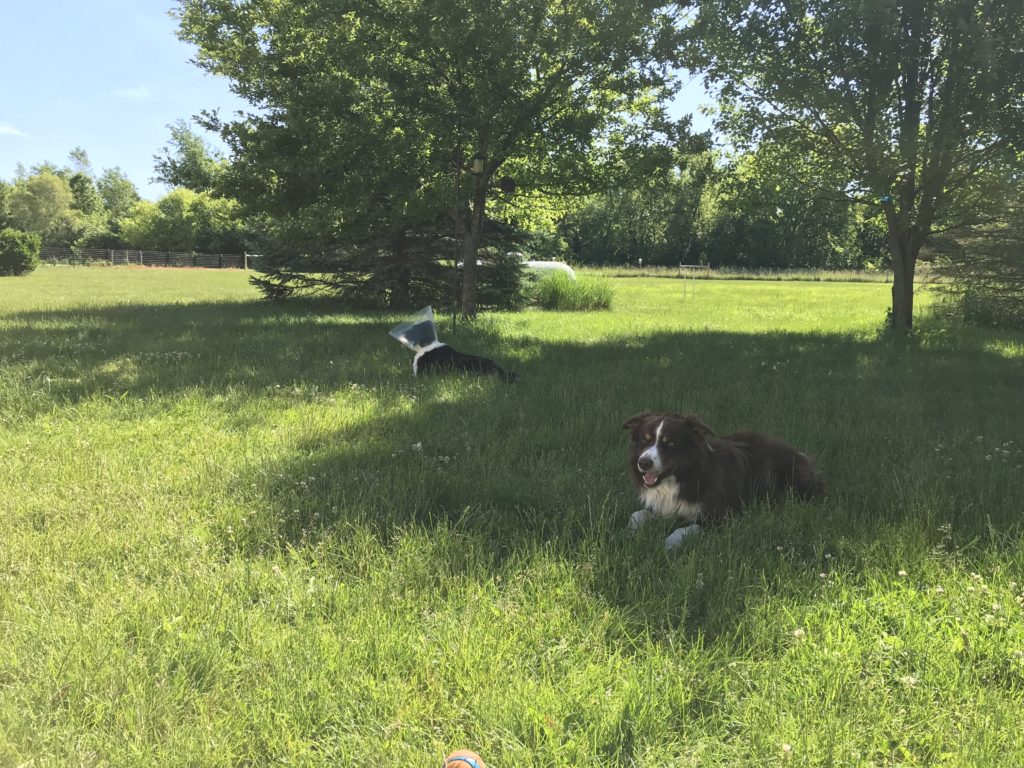Dan has a cyst on his toe that he is licking constantly. The vet said he needs to stop licking. A cone is the easiest way to do this, but Dan hasn’t worn a cone since he got neutered as a puppy. He’s 8 now. I haven’t done any training around wearing a cone with him, although it is now high on my list for both Dan and Doug.
Because I want the cone to be as low-stress as possible, I decided to introduce it slowly. Putting it on and leaving it on right away could be unpleasant and might result in all sorts of avoidance-behaviors or escape-behaviors like pawing it, rubbing it on the ground, or hiding when we pick up the cone to put it on. In the meantime, that we have had to use socks to prevent licking (vet-approved) for now. This is not ideal because they don’t stay on well, but Dan is more used to the socks and it seemed like the least intrusive solution while we work on the cone training.
The cone training is going faster than I expected. My best guess is that maybe our muzzle training is similar enough that there’s a bit of generalization there. We began Saturday morning and are still working on it, but I wanted to share some of the training sessions we’ve done so far.
Generally the steps I’ve used have been:
- Introduce the cone, yes+treat for sniffing or interacting with it. (Video 1)
- Put head into cone voluntarily–> yes+treat and release word “ok” for pulling head back to take it off. (Video 2)
- Wear cone while doing known tricks. This is something I learned from Muzzle Up!’s Maureen Backman. That by doing tricks and playing little games while wearing a muzzle, dogs can contact reinforcement for moving while wearing the thing. (Video 3)
- Wear cone while doing the “bed” behavior. This one I decided was critical because ideally he will wear the cone while relaxing and just hanging out. I wanted to be sure Dan could easily navigate to his bed, lie down in the cone, and get back up. It was also a way to add a little bit of duration with a stay on the bed. (Video 4)
- Yard walk. We did a few laps around the yard together, frequent treats for coming to me when I called, a chance to try munching on grass and sniffing while wearing the cone. This went so well that I left it on for about 30 minutes while we sat in the yard together. (No video, but photos at the bottom).
- Sunday afternoon we tried to have him wear the cone while we watched a little TV. After about 15 minutes he began to paw at the cone. So we took it off immediately. This might be the most important part of the training. I want to be sure that Dan does not practice lots of pawing, or pulling the cone off. This is information to me that he wasn’t ready for that situation. This is one of those escape-behaviors that I want to prevent from popping up. It could be the context of the TV room while wearing the cone doesn’t have enough reinforcement behind it yet or maybe the duration was too long or maybe his foot itched more during this time. Licking has been more likely during TV time than during yard time, so that could be playing a role as well. Cone on during TV time is what we will work on next. (No video)
These steps might be different for different dogs – this isn’t meant to be a training plan or formula. I just wanted to share what I’ve done with Dan so you can see how I gradually introduced the cone. So far, he comes up to us, tail wagging, when we pick it up. My goal is for that behavior to be a lasting response to the sight of the cone and for Dan to be able to wear the cone for longer periods of time, comfortably, so that we can get a bit of a break from putting his sock on over and over again.
1. Introduction to the cone, begin head-in
2. Practicing head in and out of the cone
3. Tricks with cone on
4. Practicing “bed” with cone on


